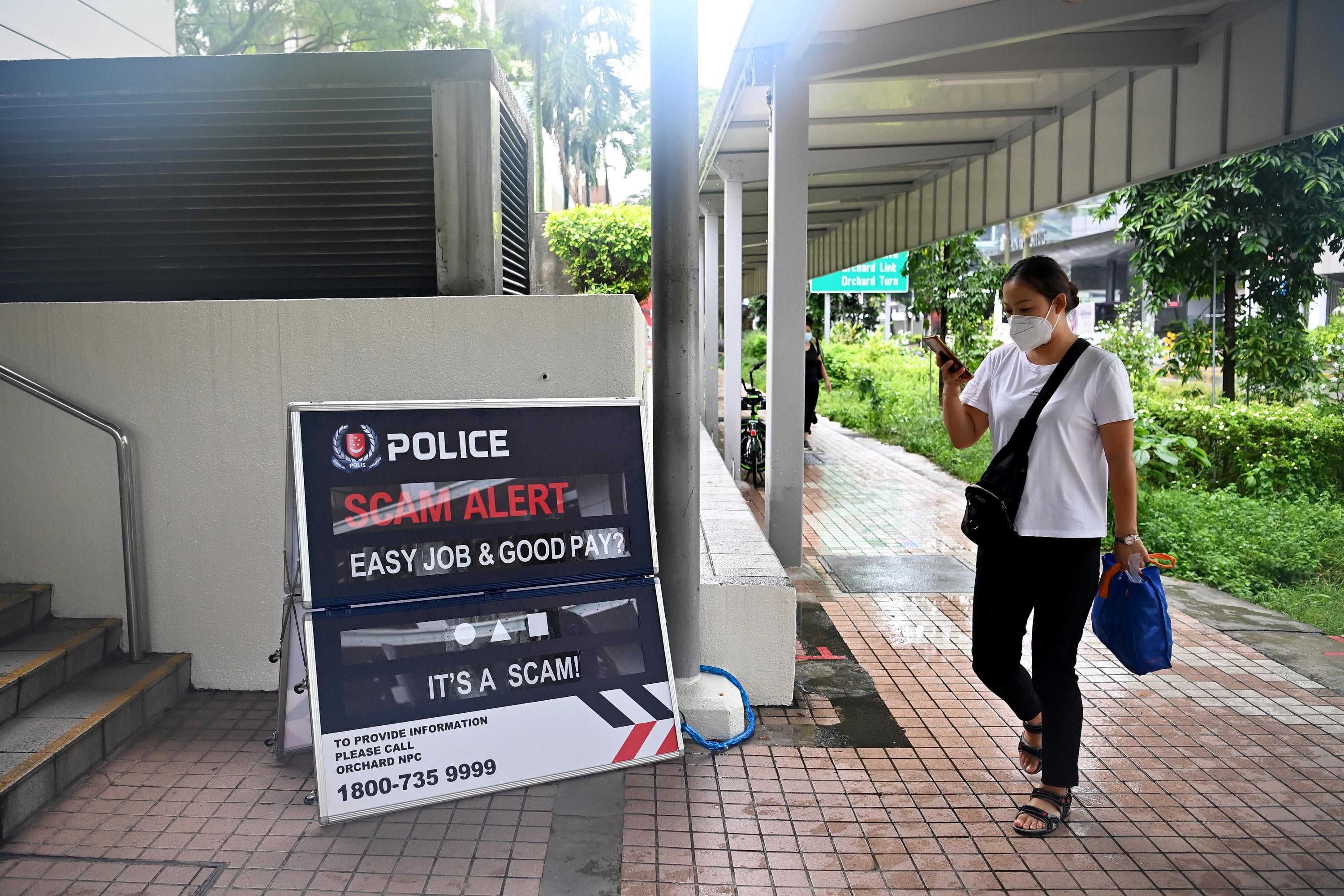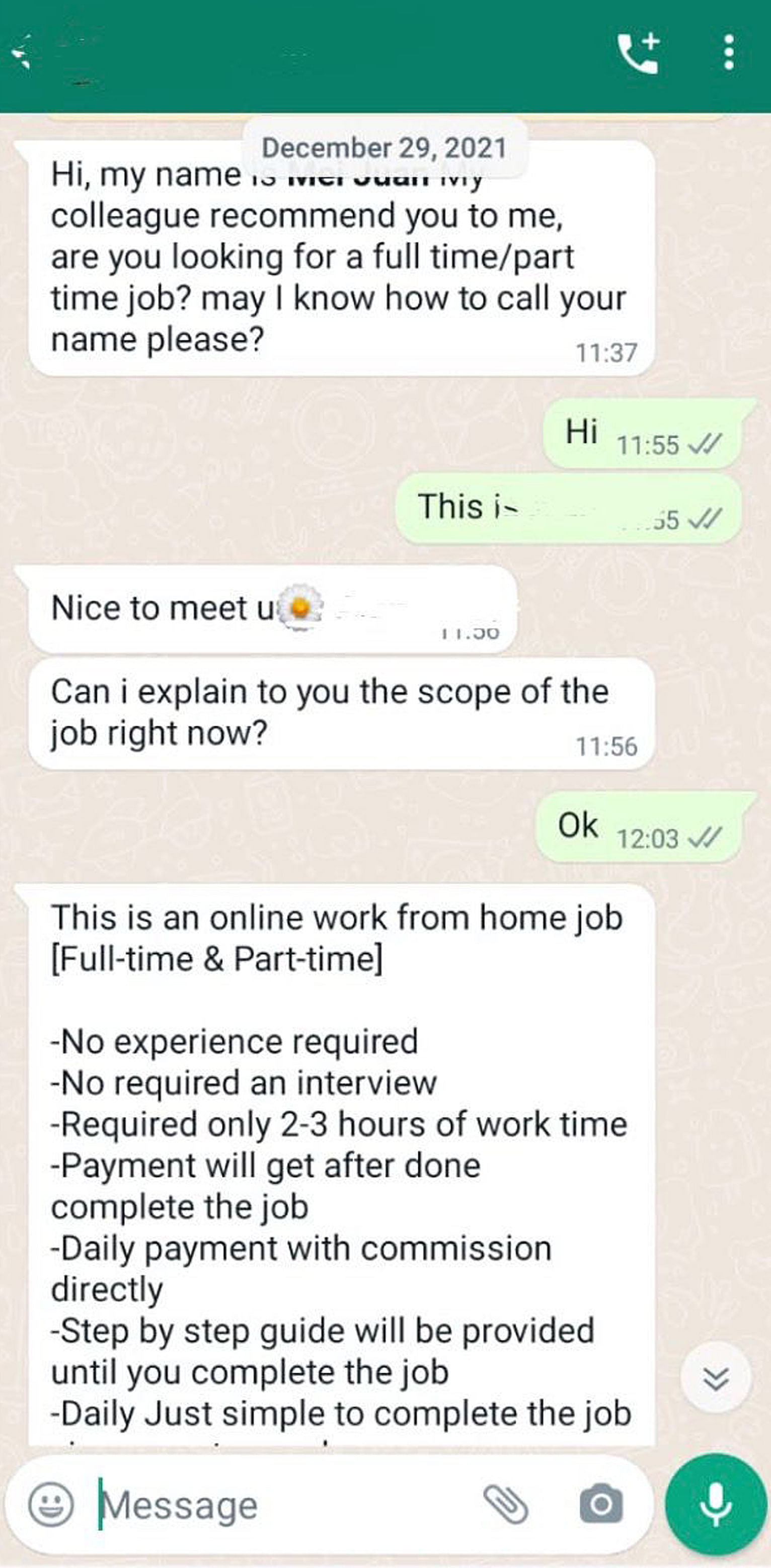Man was 'hired' by recruiter, only to be cheated of $24k in three days in job scam
Sign up now: Get ST's newsletters delivered to your inbox

The job Mr Lee took on required only two hours' effort a day, and promised a daily salary of $80 to $120.
ST PHOTO: LIM YAOHUI
Follow topic:
SINGAPORE - When he received a Telegram message on Dec 29 last year advertising a data optimisation job that required only two hours' effort a day, Mr Lee thought he could make easy money.
The job promised a daily salary of $80 to $120, a woman who gave her name as Mei Juan told him over text messages.
The 32-year-old administrative assistant, who declined to give his full name, thought that all he needed to do was click on buttons on a website to boost the data of selected items.
He was told it would increase the sales of a furniture company overseas, and that he would be working for a marketing software company.
"I Googled the (software) company and saw it has a presence in Singapore. The woman who approached me even suggested we could meet face to face, to teach me how to use the website," said Mr Lee.
He suggested a video call instead, but the "recruiter" said she did not feel comfortable doing so as someone she had previously tried to recruit had appeared half-naked over the Zoom call.
Mr Lee decided to accept the offer anyway.
Following Mei Juan's instructions, he created an account on the purported software company's website.
He had to complete 45 orders every day by clicking on two buttons on the site, which he was told would optimise data of the "furniture" items.
The cost of each item varied, but could go up to a few thousand dollars.
When he first started clicking the buttons, the website showed that a few hundred dollars were available. It was not his money.
As he clicked the buttons, the amount dropped quickly.
As he could not proceed with the data optimisation task, Mr Lee asked Mei Juan for help.
She told him he had to top up the account via PayNow by transferring his money to a mobile number she provided.
Mei Juan promised him a 30 per cent commission for each order he completed.

"They (scammers) let you experience the high of a win. They said when you need to top up, it means you are lucky and you have a big ticket order," said Mr Lee.
By the end of the first day, he had topped up the account with $266 of his own money, and earned $140.
In total, $406 was credited into his POSB account within minutes. As he was able to withdraw it, he thought it was safe to continue the job.
He then topped up higher sums and by Dec 31, had transferred $24,000 of his own money, thinking he would be paid the commissions soon.
He even called his bank to increase his daily transfer limit to $200,000.
Only when the website prompted him to top up another $13,000 did he stop.
Mr Lee said: "For all jobs, it's normal that the recruiter is a stranger you've never met. It's the same for part-time jobs you see advertised on Facebook and Telegram.
"But it cannot be that a job needs you to top up so much money when jobs are supposed to pay you a salary."
He eventually lodged a police report on Jan 5.
When he called the number linked to the PayNow account, the line was no longer in use.
The website Mr Lee used is now advertising dating sites.
Mr Lee, who is single, said: "The savings were for when I fall sick in the future or want to buy my own home.
"It was about half my savings. I was looking forward to a new year but then this happened."

Six anti-scam principles to follow
The Home Team Behavioural Sciences Centre developed a 6S Anti-Scam Self-Protection Principles to help Singaporeans defend themselves against scams. They are:
1. Spot the signs - Recognise the tactics that scammers use.
2. Stop and think - Ask yourself or others if a statement, message or job offer could be true.
3. Slow down, don't rush - Do not rush into providing your personal or banking details.
4. Speak to others - Check with others to verify the authenticity of a claim before doing anything.
5. Safeguard personal details and passwords - Never disclose personal information, even if the request appears to be legitimate.
6. Seek help - Talk to friends or family members for advice or support if you have been impacted by a scam.

